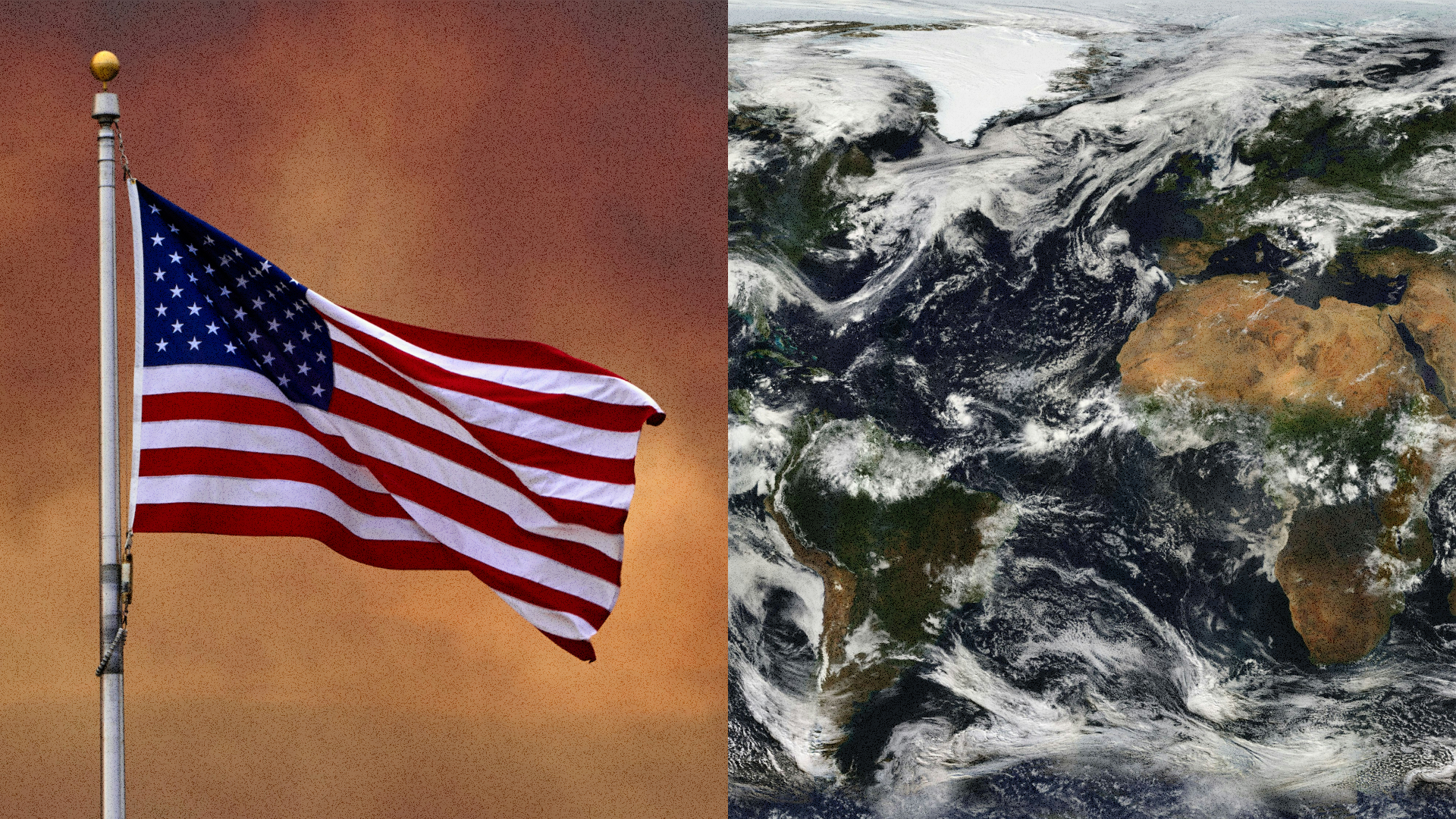
.svg)
Every day, thousands turn to Reddit to ask about U.S. work visas, but finding reliable answers can be a challenge. Whether you’re job hunting, hiring, or already on a visa, navigating the complexities of U.S. immigration is no small task.
That’s where we come in.
We’ve compiled a list of the top 16 most frequently asked U.S. work visa questions on Reddit, along with clear answers you can trust.
Click on any of the questions below to jump to their answers:
- What documents do I need to prepare for a U.S. work visa application?
- Can I get a work visa without a U.S. employer?
- Can I job hunt while on a U.S. tourist visa?
- How do I know if a job qualifies for H-1B sponsorship?
- How do I start the H-1B lottery process, and what are my chances?
- What’s the difference between “Are you legally authorized to work in the US?” and “Do you require sponsorship for a work visa?” on a job application?
- How do I answer work authorization questions on job applications if I’m on F-1/OPT/CPT?
- Will answering “yes” to needing sponsorship on a job application disqualify me from job opportunities?
- What’s the difference between a TN visa and other work visas for Canadians/Mexicans?
- What’s the process for sponsoring a foreign worker for a U.S. work visa?
- How much does it cost to sponsor someone for a U.S. work visa?
- Can I switch jobs or employers while on a work visa?
- Is there a limit to how many times I can renew or extend my work visa?
- What happens if I’m denied a work visa?
- What happens if I lose my job and my work visa is terminated?
- What documentation is required for H-1B work visa holders re-entering the U.S.?
Disclaimer: The information on this page is not legal advice. Click here to learn more about Boundless Immigration’s lawyer-guided services.
{{cta-component-horizontal-aligned}}
#1: What documents do I need to prepare for a U.S. work visa application?
The specific documents required depend on the type of work visa you are applying for. However, most applicants will need the following documents:
- Valid passport: Must be valid for at least six months beyond your intended period of stay in the U.S.
- Job offer or employment letter: A letter from your U.S. employer detailing the position, salary, and job duties
- Educational credentials: Diplomas, degrees, or transcripts that demonstrate your qualifications for the job
- Proof of work experience: Letters from previous employers or other documentation supporting your professional background
- Resume or curriculum vitae (CV): Highlights your work experience and skills relevant to the position
- Form I-797 (Notice of Action): The receipt or approval notice sent to immigrant and nonimmigrant visa applicants to inform them that their application has been received or approved.
- Application fee payment receipts: Proof that you have paid the required visa application fees.
Depending on your visa type and personal circumstances, you may also need:
- Form DS-160 (Nonimmigrant Visa Application): The online application form for most nonimmigrant visas. You must complete and print the confirmation page.
- Petition approval notice: For certain work visas, you need the original or a copy of your approved petition from U.S. Citizenship and Immigration Services (USCIS)
- Sponsorship letter : Some visas require a letter from your employer confirming sponsorship and detailing the terms of your employment
- Proof of financial support: If your employer is not covering all your expenses, you may need to show bank statements or other financial documents to prove you have the financial means to stay in the U.S.
- Marriage certificate or birth certificates (for dependents): If you are bringing family members, you may need to prove your relationship
- Police or court records (if applicable): If you have a criminal record, you may need to provide court or police documents.
- Medical examination results: Some visas may require a medical exam from an approved physician.
After submitting your application, you’ll attend a consular interview where you’ll show these documents and answer questions about your employment and background. The consular officer may request further evidence to verify your qualifications or intent to return home after your visa expires.
The U.S. Department of State’s website provides a comprehensive and up-to-date list of required documents for each visa category.
#2: Can I get a work visa without a U.S. employer?
Typically, you can’t obtain a U.S. work visa without a U.S. employer. You can apply for jobs in the U.S. from abroad, but in most cases, you cannot obtain a U.S. work visa without a U.S. employer sponsoring you. For the majority of employment-based visas — both temporary (nonimmigrant) and permanent (immigrant) — a U.S. employer must first file a petition on your behalf with USCIS. This means you generally need a job offer before you can apply for most work visas.
However, there are a few exceptions. Certain visa categories allow individuals to self-petition, meaning you do not need a U.S. employer to sponsor you. For example, the EB-1A immigrant visa for individuals with extraordinary ability and the EB-2 NIW (National Interest Waiver) allow self-petitioning if you meet specific criteria. Additionally, some nonimmigrant visas, such as the E-1 Treaty Trader and E-2 Treaty Investor visas, may not require a traditional employer-employee relationship, but you must still meet strict eligibility requirements.
#3: Can I job hunt while on a U.S. tourist visa?
Yes, it’s legal to look for work and apply for jobs in the U.S. while on a B-1/B-2 tourist visa. However, you cannot begin working or earn income until you obtain the proper work visa. Tourist visas do not permit employment, and working without authorization can result in serious consequences, including deportation and future visa bans.
If you receive a job offer, you must leave the U.S. and apply for a work visa through consular processing before you can legally begin employment.
Always be honest about your intentions when entering the U.S. and avoid misrepresenting your plans to immigration officers.
#4: How do I know if a job qualifies for H-1B sponsorship?
For a job to qualify for H-1B sponsorship, it must meet the definition of a “specialty occupation,” requiring a bachelor’s degree or higher in a specific field. Common fields include engineering, mathematics, computer science, medicine, and architecture.
USCIS ultimately decides whether a position qualifies as a specialty occupation based on the evidence provided, including the job description, required qualifications, and proof that the role cannot be performed without specialized education or experience. If these criteria are met, the job is likely to qualify for H-1B sponsorship.
#5: How do I start the H-1B lottery process, and what are my chances?
To enter the H-1B lottery, your employer must register you during the annual registration period (usually in March). Once the registration period closes, USCIS conducts a random selection process (the “lottery”) to choose who may proceed with an H-1B petition. If you are selected, your employer can submit a full petition. If not selected, your registration remains in the system as “Submitted” until the cap is reached for that year.
In recent years, demand has far exceeded supply, so the selection rate has been relatively low (25.6% for FY 2025). These odds can fluctuate each year depending on the number of registrations.
The process is competitive, so it’s a good idea to have a backup plan if you’re not selected.
#6: What’s the difference between “Are you legally authorized to work in the US?” and “Do you require sponsorship for a work visa?” on a job application?
“Are you legally authorized to work in the US?” means: Do you have legal permission to work in the U.S., without needing sponsorship? You can answer “yes” if you’re a U.S. citizen, green card holder, or have work authorization through certain visas.
“Do you require sponsorship for a work visa?” means: Do you need the employer’s help to sponsor your work visa (i.e. obtain or extend your legal right to work in the future).
Employers ask both questions to determine your current eligibility and whether they will need to undertake the sponsorship process on your behalf. Always answer honestly and clarify your situation to avoid misunderstandings.
#7: How do I answer work authorization questions on job applications if I’m on F-1/OPT/CPT?
If you’re on an F-1 visa with Optional Practical Training (OPT) or Curricular Practical Training (CPT) authorization, you should answer “yes” to the question that asks “Are you legally authorized to work in the US?”
If you’ll need sponsorship after your current OPT/CPT authorization expires, you should indicate that by answering “yes” to the question “Do you require sponsorship for a work visa?”
Be honest and clear about your status to avoid misunderstandings with potential employers and to ensure compliance with U.S. immigration laws.
#8: Will answering “yes” to needing sponsorship on a job application disqualify me from job opportunities?
Some employers may screen out applicants who require sponsorship due to the extra cost and paperwork involved. However, many companies — especially in tech, engineering, and healthcare — are willing to sponsor highly qualified candidates. It’s important to highlight your unique skills and experience, and to target employers known for sponsoring work visas. Networking and persistence can also improve your chances.
#9: What’s the difference between a TN visa and other U.S. work visas for Canadians/Mexicans?
The TN visa is a special nonimmigrant visa available only to Canadian and Mexican citizens under the United States-Mexico-Canada Agreement (USMCA, formerly NAFTA) agreement. It allows for employment in certain professional occupations and does not require a lottery or cap, unlike the H-1B. The application process is generally faster and less expensive, but the visa is not a path to permanent residency.
Major differences between TN visas and other work visas like the H-1B include:
- No annual cap or lottery
- Faster processing times
- No requirement for dual intent
- Lower cost
- Indefinite renewability
- Occupation-specific
- Employer-specific
- Stricter requirements for reentry into the U.S.
#10: What’s the process for sponsoring a foreign worker for a U.S. work visa?
To sponsor a foreign worker for a U.S. work visa, an employer typically must:
- Determine the appropriate visa type
- Obtain a labor certification from the Department of Labor, if applicable
- For most nonimmigrant visas: File a petition Form I-129 (“Petition for Nonimmigrant Worker”)
- For immigrant visas: obtain a PERM labor certification, then file Form I-140 (“Immigrant Petition for Alien Worker”)
- After petition approval, the worker applies for a visa at a U.S. embassy or consulate.
#11: How much does it cost to sponsor someone for a U.S. work visa?
Employer sponsorship costs vary widely depending on the visa category, employer size, and other factors. Expect to pay a few thousand dollars or more through:
- Government filing fees (~$450–$1400)
- Fraud Prevention and Detection Fee ($500)
- Premium processing (optional) ($2805)
- Legal fees ($1,500+)
- Additional fees
Visit USCIS’s website for a breakdown on fees.
#12: Can I switch jobs or employers while on a work visa?
Yes, you can switch jobs or employers while on a work visa, but the process depends on your visa type. For example, with an H-1B visa, your new employer must file a new petition on your behalf before you start working. Some visas allow for “portability,” meaning you can begin working for the new employer once the petition is received by USCIS, even before it’s approved.
#13: Is there a limit to how many times I can renew or extend my work visa?
Whether you can renew or extend your U.S. work visa — and how many times — depends on your specific visa type:
- H-1B visa: Generally limited to a total of six years (initial three years plus one three-year extension). Extensions beyond six years are possible only if you are in the process of obtaining a green card (with an approved I-140 or pending PERM), allowing one- or three-year extensions as long as you remain eligible.
- O-1 visas: No set limit on the number of renewals. As long as you continue to meet eligibility requirements, you can renew or extend these visas indefinitely.
- Other visa types: Rules vary, so check the specific conditions for your visa.
Each renewal or extension requires a new application and continued compliance with visa requirements. Always check the specific rules for your visa type to avoid overstaying your authorized period.
#14: What happens if I’m denied a work visa?
If your work visa application is denied, you may have options depending on the reason for denial and your situation. Common reasons for denial include missing documentation, failure to meet eligibility requirements, past immigration violations, or issues with your employer’s petition.
Potential options after a denial are as follows:
- You may reapply after addressing the issues that led to denial
- Your employer may file a new petition if the denial was due to missing or incorrect information
- If you’re applying for an immigrant visa, your employer can appeal the decision by filing Form I-290B within 30 days of the denial if they believe USCIS made an error
- In some cases, you may be eligible to apply for a waiver of inadmissibility
If you’re unsure about why your visa application was denied, it’s a good idea to consult with an immigration attorney to determine the best course of action.
A single work visa denial does not automatically disqualify you from future applications. However, repeated denials or a history of visa issues can be noted in your record and may affect future applications. It is important to address the reasons for previous denials and provide as much supporting documentation as possible in any new application.
#15: What happens if I lose my job and my work visa is terminated?
If your work visa expires — or if you lose your job and it’s terminated — you typically must leave the U.S. or change to another visa status. Some visas, like the H-1B, offer a grace period (typically 60 days) to find new employment, change status, or make arrangements to depart. Staying in the U.S. beyond your authorized period can lead to overstay penalties and future immigration complications, so it’s important to act quickly.
#16: What documentation is required for H-1B work visa holders re-entering the U.S.?
H-1B visa holders must present a valid passport (valid for at least six months), an unexpired H-1B visa stamp, and the original I-797 approval notice when re-entering the U.S. Additional documents include a current employment verification letter (issued within six months), copies of the I-129 petition, and recent pay stubs to confirm active employment. Those visiting Canada, Mexico, or certain areas in the Caribbean for under 30 days may re-enter with an expired visa under “automatic revalidation,” but this does not apply to other destinations.
{{cta-component-center-aligned}}
.png)
.png)
.png)









.svg)
.avif)